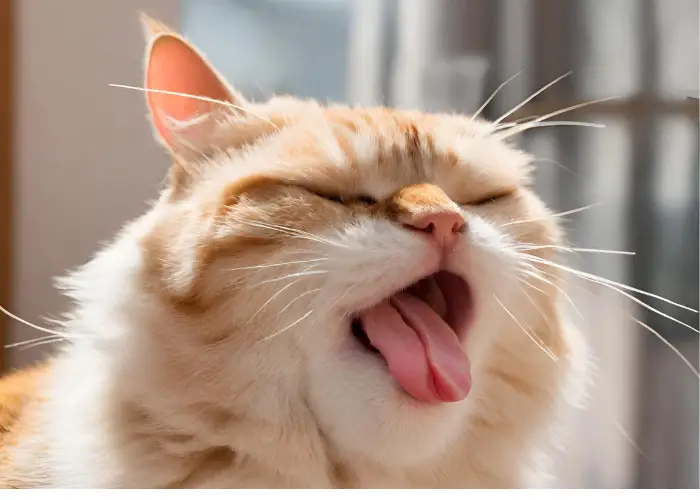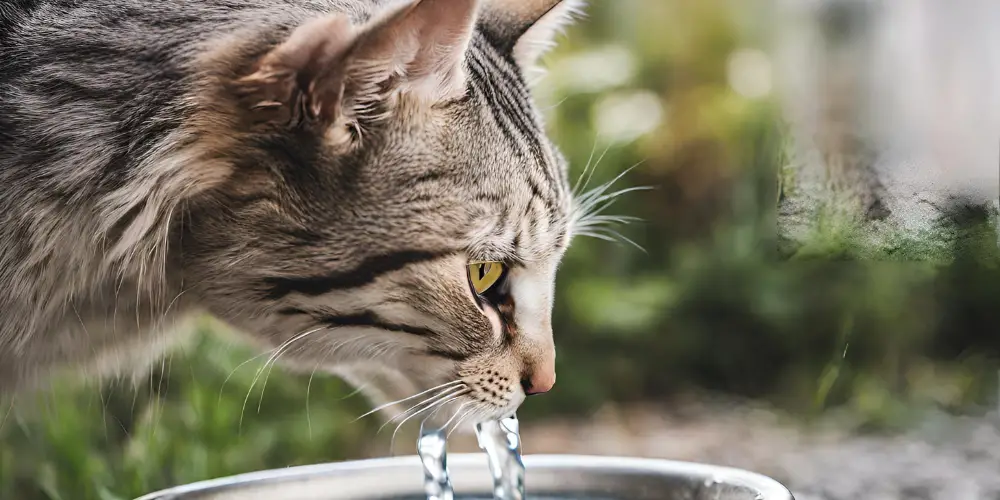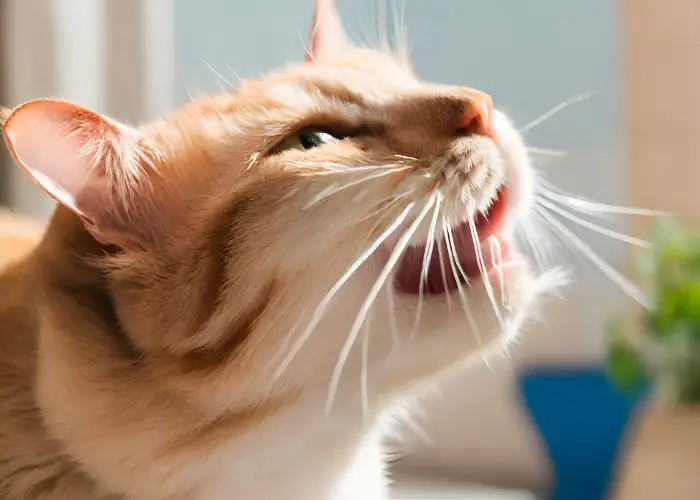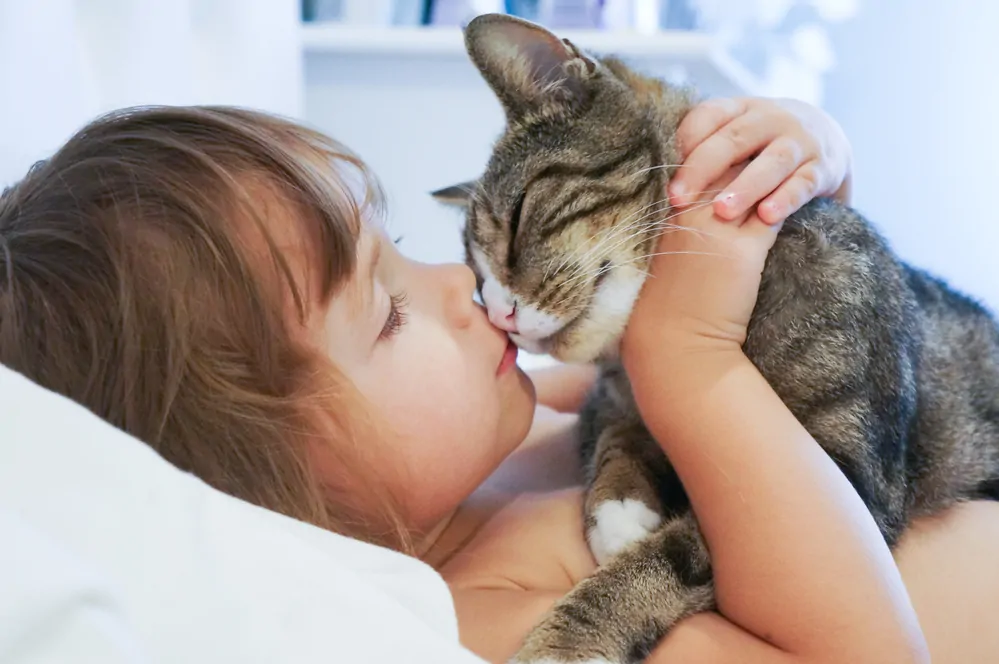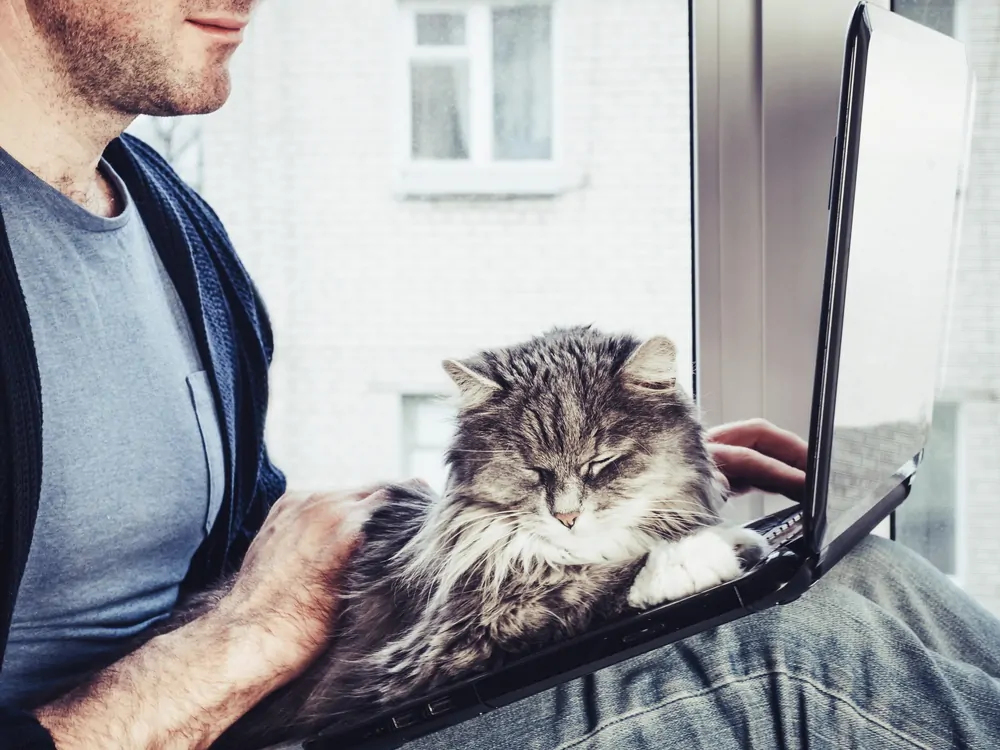Cats, known for their curious and often mysterious behavior, exhibit a variety of actions that can sometimes puzzle their owners. One such intriguing behavior is coughing after drinking water.
This article delves into the seven common reasons cats cough after hydrating, shedding light on when this behavior is a mere quirk and when it could signal a health concern.
By exploring these reasons, cat owners can be better informed about their feline friend’s health and know when to seek veterinary advice.
Let’s dive in!
1. Drinking Too Quickly & Related Medical Conditions:
A common sight in many households is a cat hastily lapping up water, only to cough.
This often happens when cats drink too fast, leading to a small amount of water entering their windpipe instead of the esophagus.
While this in itself is not a severe issue, it can be indicative of underlying health conditions.
For instance, a cat that consistently drinks water quickly may be suffering from dehydration due to conditions like kidney disease, diabetes, or even just excessive salt intake.
These conditions make cats more thirsty, prompting them to drink rapidly and in larger quantities than usual.
It’s essential to monitor your cat’s drinking habits. If you notice a sudden increase in your water intake or if coughing after drinking becomes frequent, it might be time to consult your veterinarian.
They can conduct tests to rule out medical conditions that could be causing excessive thirst and subsequent coughing.
2. Tight Collars
Another surprisingly simple reason behind coughing in cats post-drinking is a collar that’s too tight.
A collar presses too firmly against a cat’s throat, which can interfere with normal swallowing.
This pressure can lead to discomfort and coughing as the cat drinks water. Cat owners must ensure their pet’s collar is adjusted correctly.
A good rule of thumb is to fit two fingers comfortably between the collar and your cat’s neck.
If your cat continues to cough after loosening the collar, it might be due to other reasons on this list, which should be explored further.
3. Water Quality and Taste: Neurological Pathways
Cats have a refined taste, extending to their perception of water quality.
Factors such as mineral content, the presence of cleaning agents, or even the type of bowl (plastic bowls can sometimes impart a strange taste) can affect how water tastes to a cat.
If the water tastes unpleasant, it can trigger a neurological response, causing the cat to cough as a reflex to reject the fluid.
This reaction is linked to the vagus nerve activation, which communicates with the brain to initiate a gag reflex.
To avoid this, cat owners can switch to filtered or bottled water, use ceramic or stainless steel bowls, and ensure that water is always fresh and clean.
This simple change can significantly reduce the incidence of coughing related to water taste.
4. Swallowing Small Objects & Throat Obstructions
Cats are naturally curious, often leading them to explore and sometimes ingest small objects.
These objects, such as pieces of string or dust particles, can inadvertently fall into their water bowl and be swallowed while drinking.
This accidental ingestion can cause coughing as the cat tries to dislodge the object.
In addition, internal obstructions like hairballs, especially in long-haired breeds, can lead to coughing.
Regular grooming and ensuring clean, fresh water can help prevent such incidents.
5. Respiratory Infections
Respiratory infections, such as Feline Herpesvirus and Feline Calicivirus, are common in cats and can lead to coughing after drinking water.
These infections cause inflammation and swelling in the cat’s airways and throat, making it uncomfortable or difficult to swallow water smoothly.
Symptoms of respiratory infections often mirror those of a human cold, including sneezing, nasal discharge, and watery eyes.
6. Allergies and Their Relationship to Coughing
Allergies in cats can be another cause of coughing, and various factors, including environmental allergens like pollen, dust, or certain foods can trigger these.
Like respiratory infections, allergic reactions can lead to an inflamed throat and airways, causing discomfort and coughing during or after drinking.
Symptoms accompanying allergies might include sneezing, itchy skin, red and inflamed skin, and nasal discharge.
If you suspect your cat has allergies, a visit to the vet is essential for a proper diagnosis and to discuss potential treatments or dietary changes.
7. Underlying Medical Conditions: Heart Disease, Asthma:
Lastly, certain chronic medical conditions like heart disease and asthma can also lead to coughing in cats.
Heart disease can affect lung function and lead to fluid accumulation, causing coughing.
Asthma, characterized by periodic airway constriction, can be triggered by various factors, including stress, allergens, or even changes in the weather. These conditions often require ongoing management and treatment.
Distinguishing Between Occasional and Frequent Coughing
